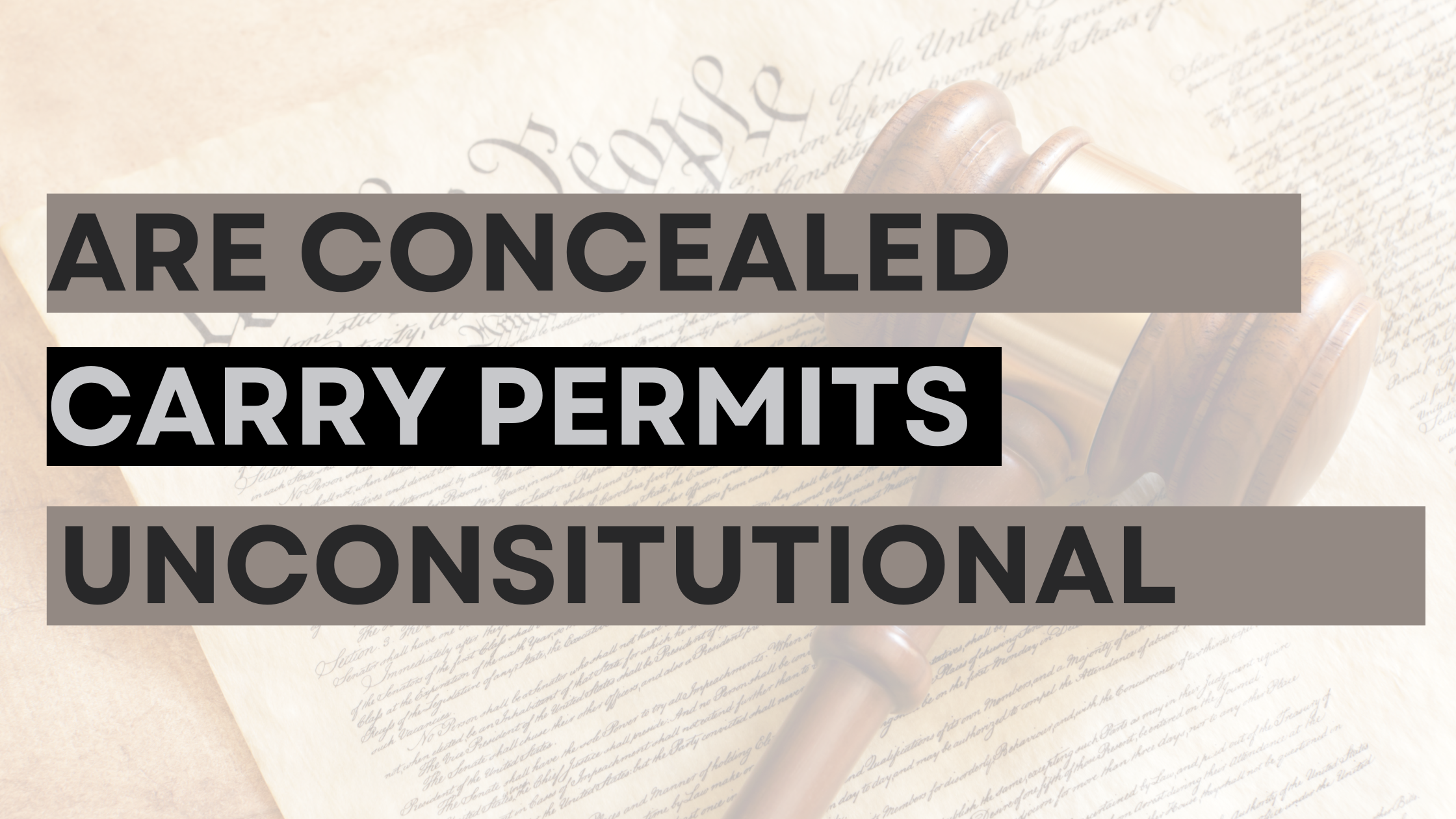Introduction To Are Concealed Carry Permits Unconstitutional?
The debate over concealed carry permits often raises the question: Are they constitutional? Proponents argue that permits ensure responsible gun ownership, while opponents claim they infringe on Second Amendment rights. This blog will explore the constitutional arguments surrounding concealed carry permits, examining both perspectives and what courts have said about the issue.
Understanding the Second Amendment
The Second Amendment to the United States Constitution states:
"A well regulated Militia, being necessary to the security of a free State, the right of the people to keep and bear Arms, shall not be infringed."
This foundational text is at the heart of the debate. Advocates of unrestricted gun rights interpret it as a clear guarantee for individuals to own and carry firearms without government interference. However, courts have allowed certain regulations, including permitting systems, to ensure public safety.
Arguments Claiming Permits Are Unconstitutional
-
Infringement on the Right to Bear Arms:
-
Opponents argue that requiring a permit adds unnecessary restrictions, turning a constitutional right into a privilege.
-
They believe "shall not be infringed" prohibits any barriers to carrying firearms.
-
-
Unequal Access:
-
Permit requirements can create inequities, particularly in "may-issue" states where authorities have discretion to approve or deny applications.
-
Critics claim this leads to arbitrary decisions and discrimination.
-
-
Financial Barriers:
-
Application fees, training costs, and renewal expenses may make permits inaccessible to lower-income individuals, effectively denying them their constitutional rights.
-
What disqualifies you from concealed carry?
Arguments Supporting Permit Systems
-
Ensuring Public Safety:
-
Proponents of permits argue that they help ensure only responsible individuals carry firearms by requiring background checks and training.
-
Permits reduce the risk of firearms falling into the hands of individuals with criminal histories or mental health issues.
-
-
Consistency with Court Rulings:
-
Courts have upheld certain regulations, including concealed carry permits, as consistent with the Second Amendment.
-
For example, in District of Columbia v. Heller (2008), the Supreme Court ruled that while the Second Amendment protects an individual’s right to bear arms, this right is not unlimited.
-
-
Balancing Rights and Responsibilities:
-
Advocates argue that permits strike a balance between the constitutional right to bear arms and the government’s responsibility to protect public safety.
-
Understand the basics of concealed carry before diving into the constitutional debate.
What the Courts Say
Key court cases have shaped the legal landscape surrounding concealed carry permits:
-
District of Columbia v. Heller (2008):
-
The Supreme Court affirmed an individual’s right to possess firearms for self-defense but acknowledged that this right is subject to reasonable regulation.
-
-
McDonald v. City of Chicago (2010):
-
This case extended Second Amendment protections to state and local governments, emphasizing that the right to bear arms is fundamental.
-
-
New York State Rifle & Pistol Association Inc. v. Bruen (2022):
-
The Supreme Court struck down New York’s restrictive "proper cause" requirement for concealed carry permits, ruling it unconstitutional. The decision emphasized that carrying firearms in public is protected under the Second Amendment, but left room for states to impose other regulations.
-
Permitless Carry: A Growing Trend
Many states have adopted "constitutional carry" laws, eliminating the need for permits for eligible individuals. These laws reflect the belief that permits are unnecessary for exercising a fundamental right. However, critics argue that such laws may compromise public safety.
Explore practical considerations for choosing a permit.
Conclusion
The constitutionality of concealed carry permits remains a deeply debated issue. While the Second Amendment guarantees the right to bear arms, courts have upheld certain regulations to balance individual rights with public safety. The trend toward permitless carry highlights evolving perspectives on this issue.

